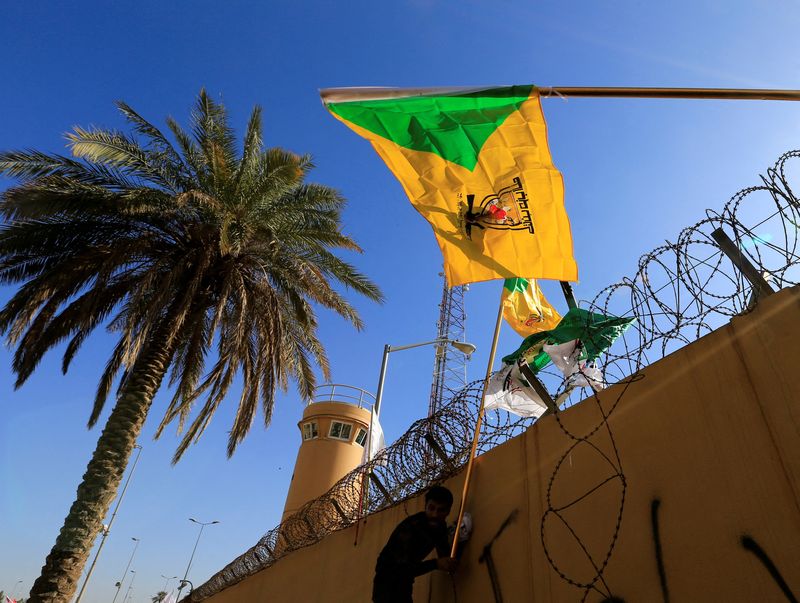(Reuters) - United States on Friday launched retaliatory strikes following an attack by Iran-backed Iraqi militants earlier this week that left three U.S. soldiers in Jordan dead and injured 40 more. The Pentagon has said the attack has the "footprints" of Iran-backed Iraqi militia Kataib Hezbollah.
What is Kataib Hezbollah?
- Founded in the aftermath of the 2003 U.S.-led invasion of Iraq, Kataib Hezbollah is one of the elite Iraqi armed factions closest to Iran.
- It is the most powerful armed faction in the Islamic Resistance in Iraq, an umbrella group of hardline Shi'ite armed groups that have claimed more than 150 attacks on U.S. forces since the Gaza war began.
- After its founding, the group quickly developed a reputation for deadly attacks against military and diplomatic targets in the 2000s, using a mixture of sniper, rocket and mortar attacks and roadside bombs. It does not openly confirm or deny involvement.
- The U.S. designated it as a terrorist organization in 2009.
- It was led by dual Iraqi-Iranian citizen Abu Mahdi al-Muhandis until he was killed in a U.S. drone strike in 2020 along with Iranian Quds Force commander Qassem Soleimani at Baghdad's international airport.
- The group has a transnational Shi'ite ideology that views the borders between Iraq, Syria and Lebanon as Western constructs. It views U.S. troops in Iraq as foreign occupiers and has called for their forceful expulsion.
- It fought alongside other Shi'ite militias against mostly Sunni rebels during Syria's civil war and has continued to operate in Syria since.
- A shadowy group with no announced leadership structure, Kataib Hezbollah has thousands of fighters and an arsenal of drones, rockets and short-range ballistic missiles, Iraqi officials and members of the group say.
- The U.S. has struck Kataib Hezbollah positions, bases and training and logistics hubs several times over the years.
On Jan. 24, it struck several targets in Kataib Hezbollah's stronghold in Jurf Al-Sakhar some 50 kilometres south of Baghdad in retaliation for drone and missile attacks.
- It forms several battalions in Iraq's Popular Mobilization Forces (PMF), a grouping of armed factions originally set up to fight Islamic State in 2014 that was subsequently recognized as an official security force.
Fighters receive state salaries and Kataib Hezbollah members, including some designated terrorists by the U.S., hold senior positions in the PMF.

While it is technically under the command of Iraq's prime minister as part of the PMF, the group often operates outside the chain of command and has defied and challenged government statements calling for an end to attacks on U.S. forces.
- Though it does not publicly confirm or deny links, the group is widely seen to have fielded a political party for the first time in 2021 elections in Iraq, winning several seats in parliament.